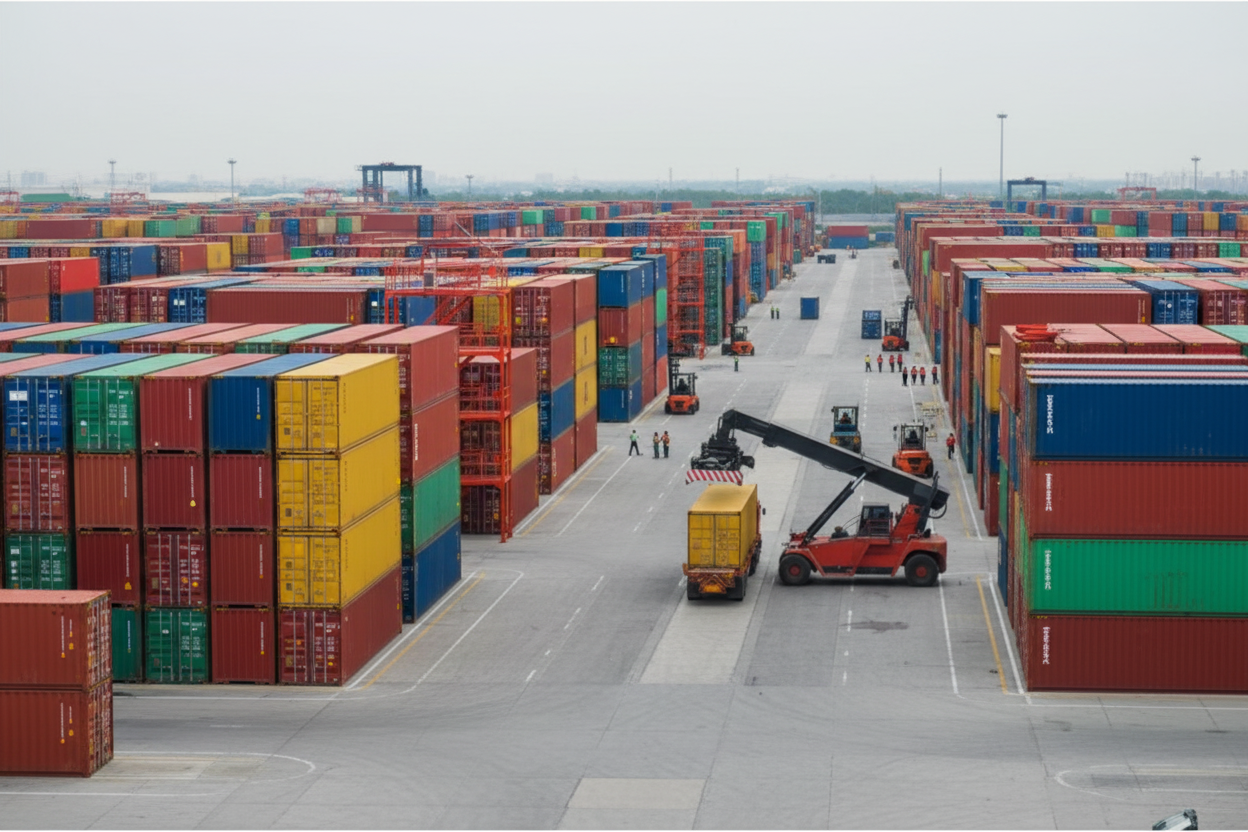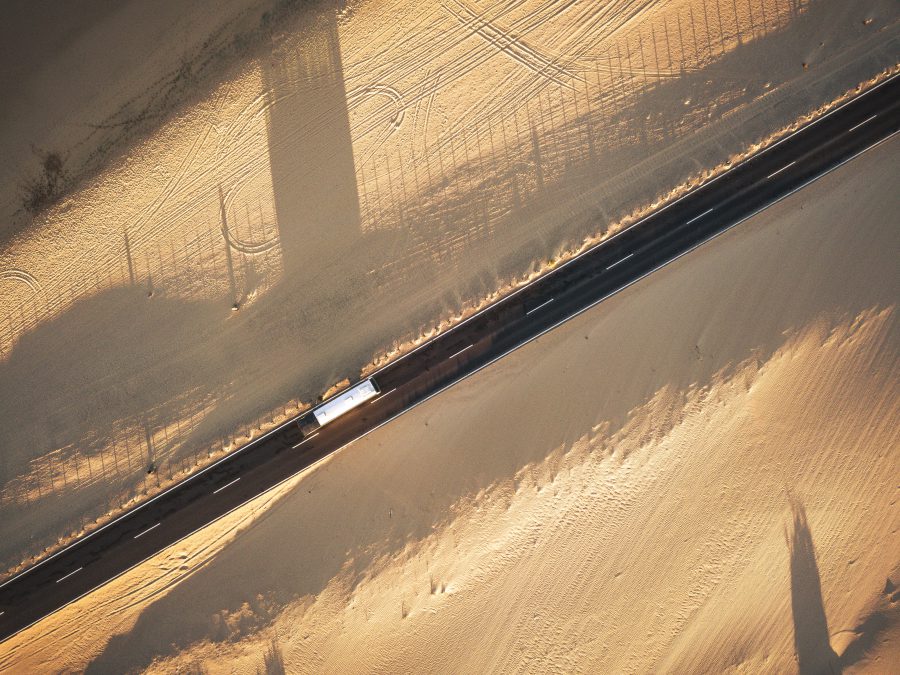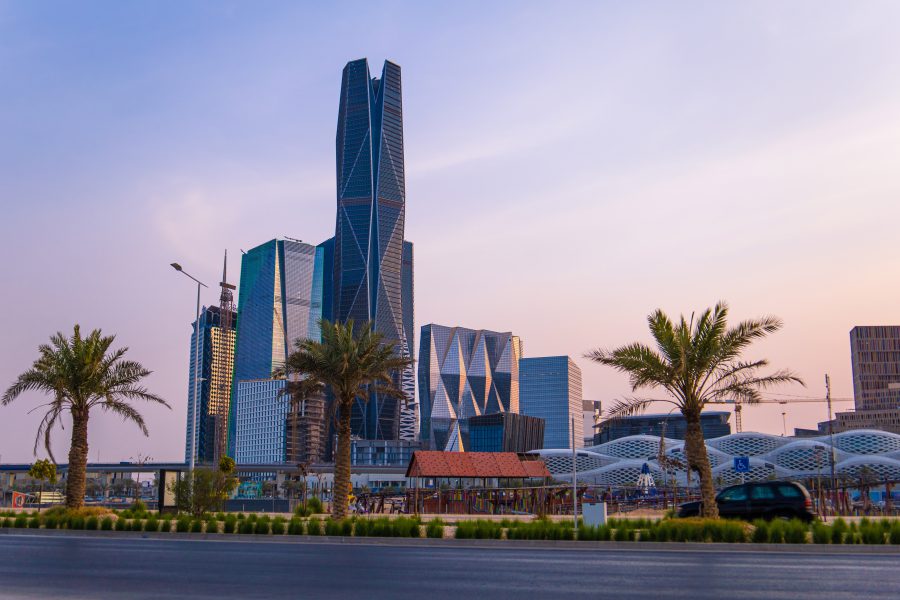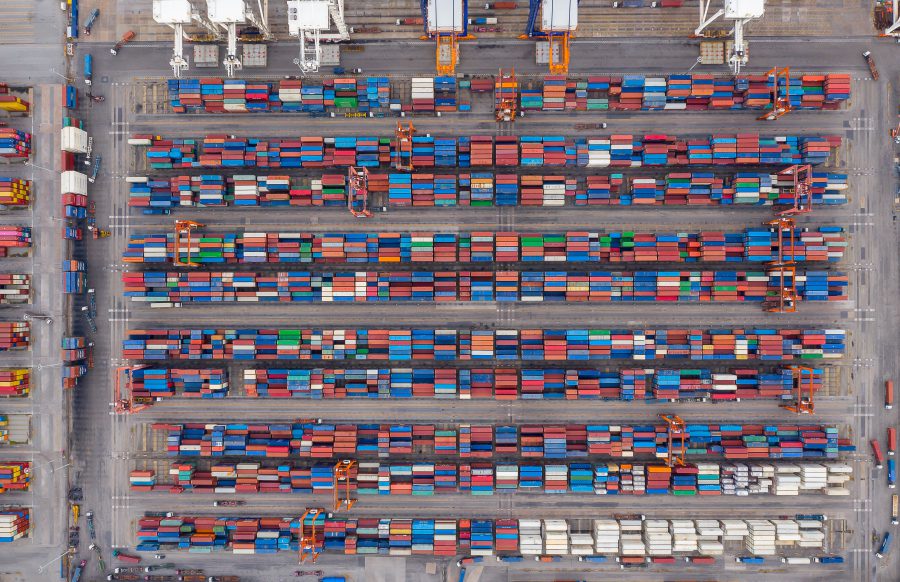Strategically located between three continents, Jeddah Islamic Port serves one of the world’s busiest shipping routes and acts as the gateway to the Middle East and its growing economies.
As part of the Kingdom’s ambitious Vision 2030 plans, there has been a real determination to thoroughly modernize the country’s shipping and logistics sector, and capitalize on the countries unique position as the gateway between east and west. As the most important port in the Kingdom, Jeddah Islamic Port has undertaken a series of measures to help establish itself as the regional hub of innovation, speed, and ease of doing business.
An important development within Jeddah Islamic Port has been the one million square kilometer logistics zone, LogiPoint. The zone, which is the largest bonded and re-export zone in the Kingdom is playing an important role in increasing the speed and effectiveness of logistics within the port.
Over the past few years, 3 initiatives, in particular, have helped the port reach new levels of efficiency and boosted the ease of doing business:
Bonded Express Facility
The adoption of e-commerce in the Middle East took longer to catch on than expected. But with some major players entering the market, and the COVID-19 pandemic having expediated the region’s acceptance of online shopping, the Bonded Express Facility has played an important role in expediting the process of moving goods through the port, so important for achieving e-commerce success.
The Bonded Express facility, through an intelligent mixture of policies, processes, and infrastructure, is able to handle inbound and outbound express shipments by air, land, and sea. This has allowed e-retailers to target the Saudi market and the larger GCC market through the port.
Cross-border speed
Typically, ships transiting through the Red Sea from Europe and the Americas would have a further 8 – 12 days of journey time ahead of them to reach other GCC ports from Jeddah. The LogiPoint logistics zone introduced the cross-border Gulf service which allows shipments to be unloaded in Jeddah and moved onto their final destination in other GCC countries through bonded trucking. This has reduced transit times by 7 – 10 days.
Sea to air and air to sea
Another important addition to the logistics zone has been the work done by stakeholders and regulatory bodies to connect the logistics process. It is now possible to import one leg via sea, move it to an airport via bond, and send it out to its final destination by air. The same thing can now be done if the first leg of the journey is by air, with the shipment reaching its final destination by sea.
The syncing up of various logistics transport methods through Jeddah’s logistics zone has been an important part of creating a fluent, multifaceted logistics destination for local and international businesses alike.







